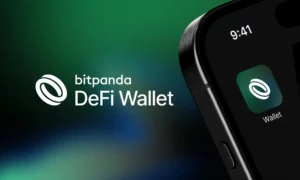
Robinhood’s Introduction of Stock Tokens Hinders DeFi Integration, Enhances Centralized Finance Compliance
Robinhood has recently launched tokenized stock contracts across the European Union (EU), enabling users to gain exposure to various equities through blockchain-based tools. Despite their appeal and accessibility, these tokens are incompatible with decentralized finance (DeFi) applications due to strict regulatory compliance.
The newly introduced tokens can only be transferred between verified and whitelisted wallets, ensuring that all transactions adhere to Know Your Customer (KYC) and Anti-Money Laundering (AML) regulations. This enforced compliance creates an isolated environment that prohibits the integration of these tokens within DeFi ecosystems, which are characterized by decentralized and trustless operations.
In contrast, this restrictive approach allows for seamless interaction with centralized finance (CeFi) institutions that require robust identity verification procedures. As such, users can leverage the tokens to invest in stocks like Apple or Microsoft, while maintaining compliance with regulatory demands.
The tokenized shares’ restricted nature has sparked debate among cryptocurrency enthusiasts and experts. Some argue that the limitations imposed by Robinhood restrict the potential of decentralized finance platforms, as they cannot be integrated into existing DeFi ecosystems. Others propose that this approach enhances trustworthiness and confidence in centralized financial institutions, fostering user adoption.
To facilitate the tokenization of real-world assets (RWAs), Robinhood plans to launch its own Layer 2 blockchain network. This novel infrastructure will provide self-custody capabilities, simple bridging, and uninterrupted trading. The new platform is expected to support thousands of new tokenized equity offerings by year-end, encompassing both publicly traded companies and private entities.
It remains to be seen whether this innovative approach by Robinhood will revolutionize the industry or hinder its potential for DeFi integration. Nevertheless, it is evident that the company’s stock tokens align with CeFi compliance standards, paving the way for seamless interactions within regulated platforms.
(End of Article)
Source: cryptotale.org


